
-
Find the right food for your petTake this quiz to see which food may be the best for your furry friend.Find the right food for your petTake this quiz to see which food may be the best for your furry friend.Health CategoryFeatured products
 Adult Perfect Weight & Joint Support Chicken & Brown Rice Recipe Dog Food
Adult Perfect Weight & Joint Support Chicken & Brown Rice Recipe Dog FoodThis weight management and mobility support dog food was created with Hill’s unique understanding of the biology of overweight dogs.
Shop Now Adult 6+ Large Breed Chicken Meal, Barley & Rice Recipe Dog Food
Adult 6+ Large Breed Chicken Meal, Barley & Rice Recipe Dog FoodSupports energy level, joint health, and beautiful coat in large breed mature dogs
Shop Now Puppy Sensitive Stomach & Skin Salmon & Vegetable Stew
Puppy Sensitive Stomach & Skin Salmon & Vegetable StewGentle on stomachs while nourishing skin & supporting development in growing puppies
Shop Now -
DogCat
- Cat Tips & Articles
-
Health Category
- Weight
- Skin & Food Sensitivities
- Urinary
- Digestive
- Kidney
- Dental
- Serious Illness
-
Life Stage
- Kitten Nutrition
- Adult Nutrition
Featured articles The Right Diet For Your Pet
The Right Diet For Your PetLearn what to look for in healthy pet food & nutrition, including ingredients, quality of the manufacturer, your pet's age, and any special needs they have.
Read More Water
WaterWater is the most important nutrient of all and essential for life. Animals can lose almost all their fat and half their protein and still survive, but if they lose 15% of their water, it will mean death.
Read More Pet Food Storage Tips
Pet Food Storage TipsWhere you store your cat and dog food can make a big difference in the quality and freshness once it is opened. Here are some common questions and recommendations for optimal storage for all of Hill’s dry and canned cat and dog food.
Read More -


Signs of Stress in Cats
Signs of stress in cats may include:
- Trembling
- Withdrawal
- Hiding
- Changes in activity level (more or less active)
- Attempts to escape
- Excessive scratching or chewing
- Aggressive behaviour or body language (hissing, dilated pupils, flattened ears, raised fur, tucked tail)
- Diarrhoea
- Failure to use the litter box
- Changes in appetite
- Overgrooming (may result in sores or missing patches of fur)
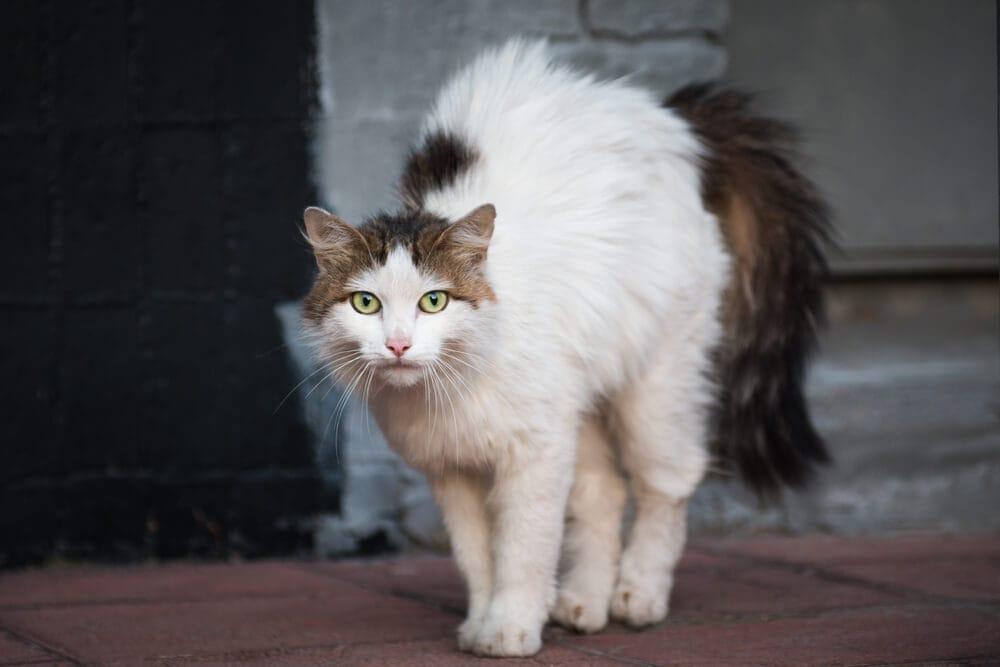


Tasty Tips
Causes of Stress in Cats
Stress and feline health are linked. Signs of stress in cats can result from a wide range of physical and behavioral causes.
Pain
Cat stress often arises from pain, such as from an injury or chronic condition. For example, senior cats who develop arthritis can experience discomfort throughout their whole body. This can impair mobility, making it difficult to squat or self-groom, which may result in accidents outside the litter box or an unkempt appearance. If your cat is in pain, they may also hide or shy away from your touch.
Illness
Anything from fever to constipation to decreased kidney function can leave your cat feeling out of sorts and increase their stress levels. If you have more than one cat in your home, illness can impact how cats relate to one another. One sick cat can increase stress in other cats in the home.
Poor Socialisation
Kittens who aren't properly socialised can act fearful when faced with something new — whether that's another pet, human family member or experience. If you didn't adopt your cat as a kitten, they may have negative associations with certain experiences from kittenhood (e.g., kids handling them, exposure to dogs) that trigger stress behaviours.
Cognitive Changes
Some cats experience cognitive changes, such as memory problems, in their senior years. Chemical changes in the brain can prompt obsessive behaviours, such as exaggerated or repetitive yowling; excessive grooming; eating, chewing or sucking on inedible items, such as fabric; or self-injury, such as attacking their tail. Certain breeds, including Siamese, Burmese and Abyssinian cats, may be at higher risk of these behaviours.
Decreased Sensory Abilities
As your cat ages, their hearing, sight and smell decline. This can affect how they interact with the world. If your cat doesn't see or hear well, they may be more easily startled, which can lead to stress.
Environmental Challenges
Changes to a cat's usual environment — such as rearranged furniture or a new family member in the home — can cause stress in cats. Older cats may be more sensitive to household changes since their ability to adapt to new situations declines over time. Insufficient resources, including litter boxes and scratching objects, an unclean litter box and lack of environmental enrichment can also cause stress.
Fear of Separation
Some cats become stressed when they're left home alone. This is especially prevalent among cats who have been rehomed or have a history of abandonment.
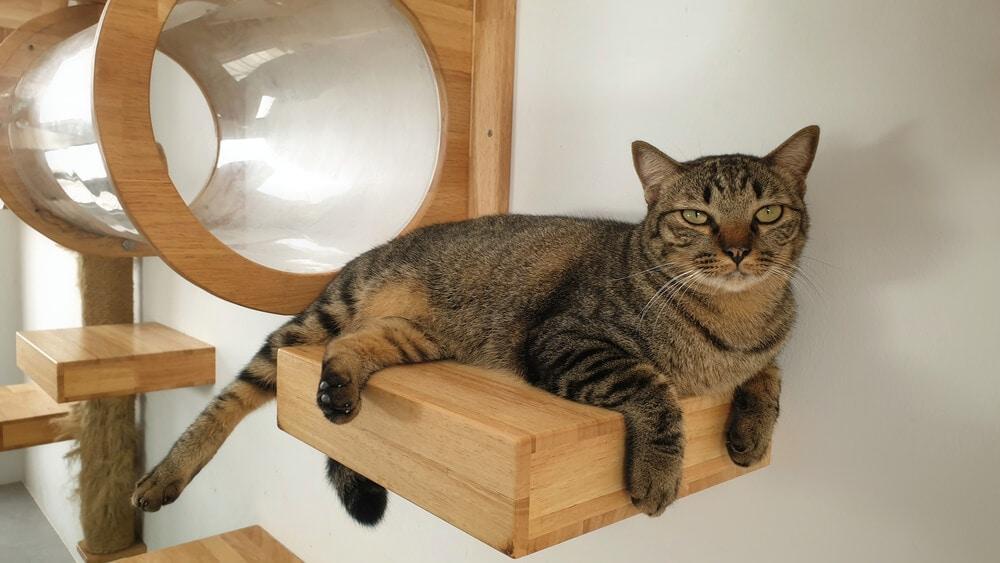
How to Help a Stressed Cat Cope
Never punish or scold your cat for unwanted behaviours — period. This only increases fear and makes things worse. Here are a few strategies that can help you minimise stressors and get your cat back to feeling their best.
Consult Your Veterinarian
If you see signs of stress in your cat, make an appointment with your veterinarian to diagnose, rule out or address any underlying health concerns. In some cases, your vet may recommend stress-reducing medication. They can also help you choose a complete and balanced food for your cat's life stage to ensure they're getting the nutrients they need to thrive.
Seek an Animal Behaviourist's Help
Depending on their assessment, your vet may refer you to an animal behaviour specialist. Behaviour experts can help you identify stress triggers and reduce unwanted behaviours by eliminating triggers. They may also try desensitising or counterconditioning your cat, which involves safe, repeated exposure to triggers or new, positive associations with triggers, respectively.
Enrich Your Cat's Environment
Environmental enrichment supports emotional and physical health and helps cats feel safe and relaxed. Here are some simple ways to enrich your cat's environment:
Add Lookouts
Cat trees, perches and shelves allow cats to relax far away from perceived danger. Place them near windows so they can watch birds and critters go by.
Support Sensory Stimulation
Set up feeders and birdbaths by windows. Bring a box of leaves inside so your cat can crunch and sniff. Grow cat grass so your cat has something fresh to nibble on.
Offer Hideaways
Boxes, tunnels and other safe havens can help cats feel secure and provide a quiet place to escape the commotion.
Provide Multiple Scratch Options
Scratching relieves cat stress by marking objects with pheromones that signal safety. Buy a few options at your local pet store, or Burmese at home!
Set Up Multiple Potty Spots
Sharing facilities is stressful for many cats, and some cats prefer one box for solids and another for liquids. Offer one litter box per cat plus one (two for one cat; three for two cats), and place them in different rooms to ensure everyone has easy access.
Keep Litter Boxes Clean
Scoop litter boxes at least one to two times a day.
Separate Food and Litter Stations
Some cats will avoid their litter box altogether if it's uncomfortably close to where they eat.
Create a Food Treasure Hunt
Relieve boredom and encourage your cat's natural hunting instinct by placing puzzle toys filled with treats or your cat's usual food around the house (factor this into their daily caloric intake to support a healthy body condition).
Supporting Your Cat's Calm
Chronic stress can have a physiological effect on your kitty's health. Getting your cat the care they need is in their best interest, and it helps maintain a peaceful home. With love, patience and help from your veterinarian, your cat can get back to their healthiest, happiest self.
Related products

Gourmet daily nutrition, carefully made. Tasty chunks with chicken & beef in a decadent gravy. Supports digestive health, nourishes skin and promotes a lustrous fur.

With delicious chunks in a decadent gravy

With delicious chunks in a decadent gravy

With delicious chunks in a decadent gravy
Related articles

Get helpful information on proper feline oral healthcare and why it's so vital to take care of your cat's teeth.
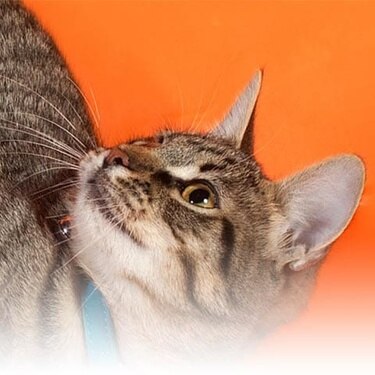
As a responsible pet owner you owe it to yourself and your cat to understand problems associated with overweight cats.
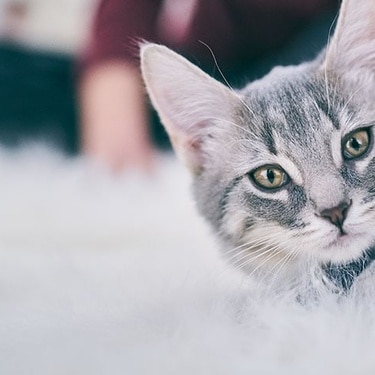
HillsPet Nutrition provides information on proper nutrition, fitness and special needs in keeping your cat healthy and happy.
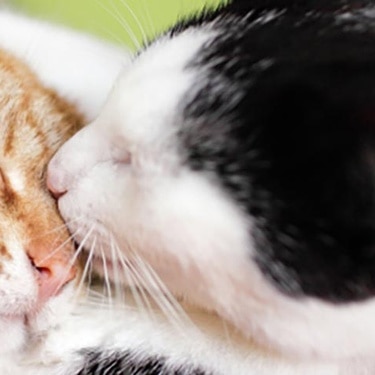
Being overweight puts a cat at risk for developing many serious health issues. Weight gain indicates an increase in body fat and usually results when your cat eats too much and exercises too little.

Put your cat on a diet without them knowing
Our low calorie formula helps you control your cat's weight. It's packed with high-quality protein for building lean muscles, and made with purposeful ingredients for a flavorful, nutritious meal. Clinically proven antioxidants, Vitamin C+E, help promote a healthy immune system.
Put your cat on a diet without them knowing
Our low calorie formula helps you control your cat's weight. It's packed with high-quality protein for building lean muscles, and made with purposeful ingredients for a flavorful, nutritious meal. Clinically proven antioxidants, Vitamin C+E, help promote a healthy immune system.


